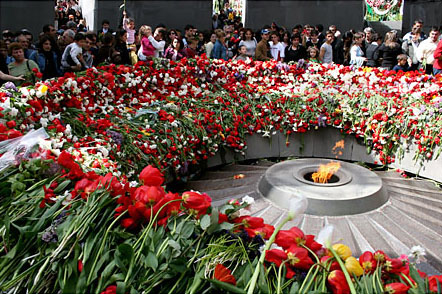
In what turned out to be a nail-biting vote, the US congressional House Foreign Affairs Committee today voted on a non-binding resolution recognizing the massacre and deportation of Armenians living in the Ottoman Empire as Genocide. Although accepted as such by many other countries, as well as by most historians, previous attempts to translate resolutions into actual bills have faltered after officials in Washington warn of the consequences of alienating Turkey, a key ally in the region.
Last year, citing momentum in attempts to get Armenia and Turkey to resolve their own painful past, US President Barack Obama avoided terming the massacres as Genocide despite pre-election pledges to do so. Since then, however, many analysts consider that Turkey has not fulfilled its promise to ratify two protocols signed in October which would establish diplomatic relations between the two estranged neighbors and establish a historical commission to resolve the issue once and for all.
Eventually, the resolution was passed by 23 votes to 22 and both Armenians and Turks live-tweeted the process, although both were unhappy with persistent delays, despite interpreting them in different ways. Many were also confused by the lack of an immediate vote tally.

In such confusion, and especially as for most of the vote it was uncertain whether the resolution would pass at all, there was even some limited communication between the two.

In the end, though, the resolution passed and many Armenians in Armenia as well as its large Diaspora celebrated while others warned of possible repercussions to come.
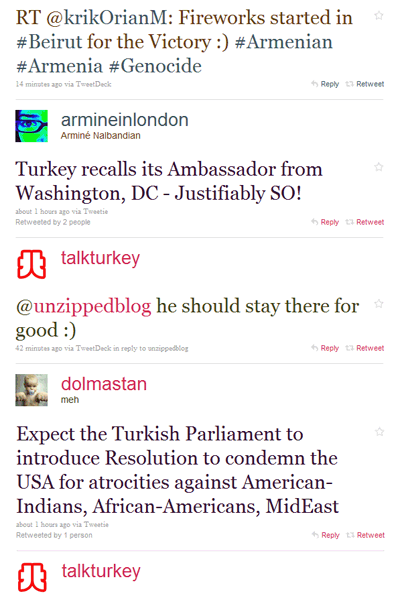
One Dutch journalist based in Turkey blogged and tweeted her concerns while some Armenians resigned themselves to certain “realities” in American-Turkish relations.
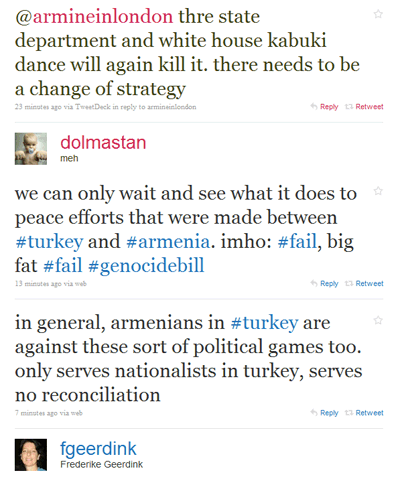
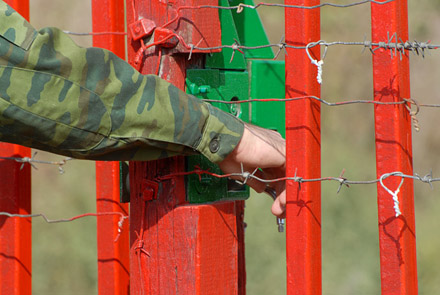
Turkey border gates, Margara, Republic of Armenia © Onnik Krikorian
Indeed, as this is not the first time such a resolution has been passed, it remains uncertain what will happen next given its non-binding nature, international pressure on Turkey to normalize relations and open its border with Armenia closed in 1993 in support of Azerbaijan during the Nagorno Karabakh conflict, and key US foreign policy objectives which require Turkish cooperation.
Even so, some on both sides of the ethnic divide hope that cool heads will prevail. For now, however, few others expect them to, but the situation will be clearer as 24 April, the date Armenians mark the anniversary of the massacres, approaches.
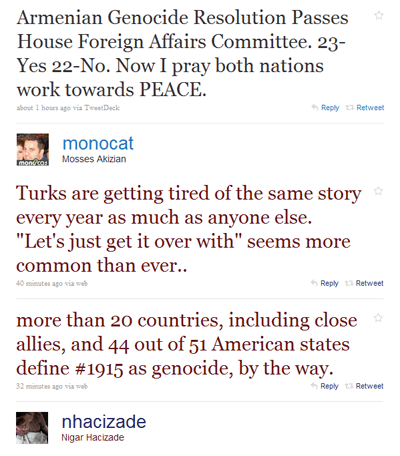

Genocide survivor, Yerevan, Republic of Armenia © Onnik Krikorian







4 comments
pls armenians peoples tell me about karabağ? okey turkey maybe kills 100years before but you are not clean to? armenians kill azerbeyjan people to? america lost turkey